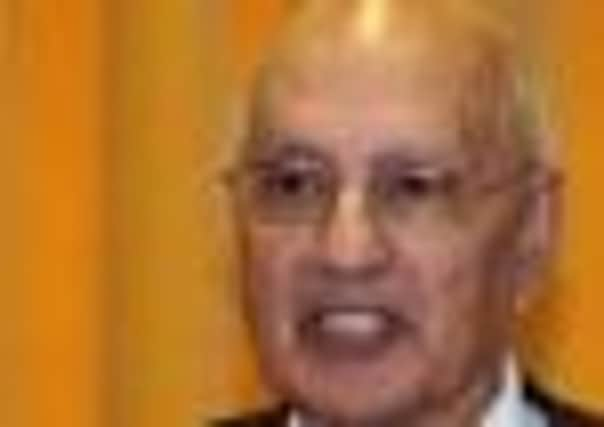Obituary: Lord Tarsem King, politician, businessman and community leader


ALTHOUGH the House of Lords prides itself, at least nowadays, on not recording or distinguishing between the ethnicity or religion of its members, Lord Tarsem King was believed to be the first Sikh member of the UK’s upper chamber. In response to a query from The Scotsman, the Lords said they could not confirm that fact but other records suggest it is true. After a recommendation by Prime Minister Tony Blair for his work as a Labour councillor in the West Midlands, Tarsem Singh first took his place on the famous red-padded benches in 1999. He became formally known as Lord Tarsem King of West Bromwich, to distinguish himself from the better known Lord King of Wartnaby, the man who turned around the ailing British Airways.
Despite his sudden elevation from local councillor to a Lord of the Realm, Lord Tarsem King became a highly respected figure among his fellow peers although some of his fellow Sikhs in the UK, indeed around the world, questioned why he did not wear the traditional turban in the Lords or on public occasions.
Advertisement
Hide AdAdvertisement
Hide AdThat historic breakthrough fell upon a newer peer, Indarjit Singh, Baron Singh of Wimbledon, appointed to the Lords in 2011 during the Tory administration. His wearing of the turban in the House of Lords became a massive symbol for Sikhs worldwide.
Close friends of Lord Tarsem King – Sikhs and non-Sikhs – often questioned his decision not to wear the traditional headdress when he made the breakthrough into UK’s supreme chamber.
On his behalf, his friends argued that, having come to Britain as a young man at the start of the 1960s, he would have been ostracised, to say the least, by wearing the turban and that “fitting in” was the recommended policy for immigrants of the time.
Having settled in the West Midlands, Lord Tarsem Singh served as a councillor for the West Midlands borough of Sandwell, which includes West Bromwich, for almost 30 years until 2007, including a spell as deputy mayor. Fast-tracked from local councillor to Lord of the Realm with Tony Blair’s backing, he served as treasurer of Westminster’s All-Parliamentary Group on India, as a member of the National Advisory Group for Gun Control and as president of the Black Country Housing and Community Services Group. He was also a patron of the Universal Peace Federation, an affiliate of the Unification Church whose members are often referred to as “Moonies”.
Tarsem Singh was born in the Punjab, in British-ruled north-west India in 1937. Arriving in England in 1960 and settling in the West Midlands, he worked as a laboratory assistant, a foundry trainee and a maths teacher before setting up his own business, Sandwell Polybags Ltd, now a major manufacturer of packaging products, based in West Bromwich.
He became an honorary alderman and freeman of the borough of Sandwell and was given an honorary PhD by the University of Wolverhampton.
Once his death became known, bloggers from the West Midlands and beyond reacted with shock: “A Lord of the Realm, King of the Punjab, son of Sandwell and Gentleman Scholar of the World. You have been a help and friend to so many… your deeds will not be forgotten!” said one blogger. “RIP, fuffarji (uncle),” said another.
Speaking on behalf of the family, Lord King’s niece Rashpal Kaur said: “We are all still in shock at the moment. It happened so suddenly. His entire family is distraught at his death. He was so well-known to the Sandwell community.”
Advertisement
Hide AdAdvertisement
Hide AdSandwell councillor Mahboob Hussain described him as an “exceptionally hard worker” who had been involved in politics for 40 years.
“He was very active locally and will be remembered as one of the best. Despite his age he would travel to the House of Lords every day.”
Lord Tarsem King collapsed on a platform at London’s Euston station on his way home from a House of Lords’ session. He was pronounced dead in hospital, from a suspected heart attack.
He is survived by his wife Mohinder, son Raj and two grandchildren, aged seven and four.